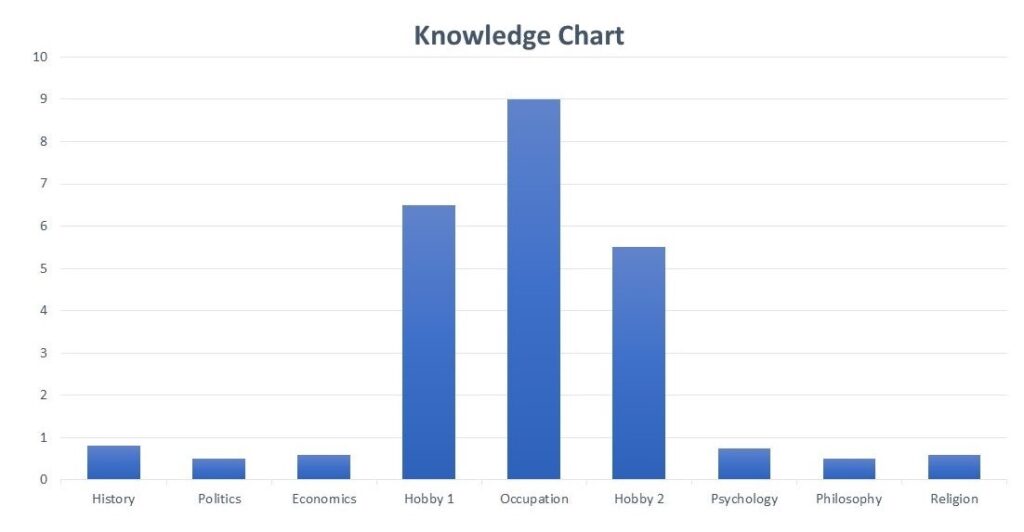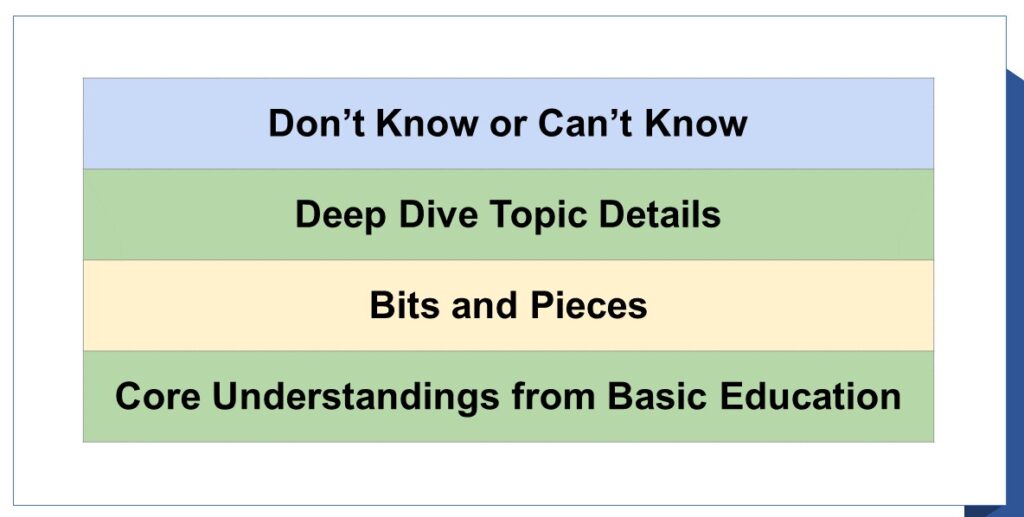Twenty to thirty percent of kids today leave school early or barely pass. Many wind up believing they’re not capable and avoid intellectual endeavors their entire adult lives (like, reading or taking a course). Because they hated school, some get robbed of the most essential life skill—the belief that you can do it. Fortunately, there’s help on the way—inquiry-based learning
Traditional learning involves school boards deciding what you should know and shoving it down your throat. Inquiry-based starts from the position of what you’d like to know and facilitates your interests from there. For example, Language Arts. Wouldn’t it be nice to pick your own book? One that peaks your interest and was written in this century? Or how about writing an essay from a list of topics?
Now, since doctors seem to be doing a good job and bridges aren’t falling down, let’s leave the maths and sciences alone. And elementary schools are working just fine, so their systems stay. Inquiry-based is for high school subjects more social in nature. Here’s an example.
Language Arts
My son recently completed grade 12. His Language Arts course included reading the 1940s play, Death of a Salesman. It’s about a 63 year-old salesman married to a stay-at-home mom. They have two sons, Biff and Happy. The plot involves the salesman facing the struggles of aging adult life and, in the end, he kills himself.
I enjoyed the story because the character is close to my age, shares my family situation (married with two sons), and I too, am a salesperson. I also loved seeing the old expressions my mother used to use. But my 17 year-old son got absolutely nothing from it.
This play is famous for touching people’s hearts at the time. A time that a person of my age and circumstance can relate to. But are you kidding when it comes to modern day students? Stay-at-home mom? Biff and Happy? Just sons? 1940’s expressions? Suicide? Certainly we have better books for these kids to read. And if not, let’s write one.
Objectives
The objective of LA should be to foster a love of reading and teach proper writing skills. This way kids will be encouraged to explore and know how to properly write an email. Likewise with history. We need to open their minds to the events of our past without making it seem boring. Yes, we still need to teach the basics, but there’s definitely room for individualism.
Schools are too focused on memorize and regurgitate. So we’re only teaching how to survive within a regimented system. And nobody is leaving with any bonafide knowledge. The platform needs to be changed to where kids learn “how to learn” and enjoy doing it. So they’ll be able to tackle any topic throughout their young adult life.
Levels and paths
In the business world, teaching doesn’t involve playing games since our objective is simply to ensure students acquire knowledge. Test questions are often given at the beginning of a lecture and there’s no complicated grading system. We want everyone to get 100%.
We feel learning is best done in levels along a well prescribed path. Start with an overview and then go deeper from there. For example, a one-page summary, then three, then ten. Eventually, you’ll be keen to read the whole book.
Learning paths and knowledge should be everywhere. They’re not supposed to be secrets. And textbooks aren’t something to be lost or handed back. They’re treasures to be reread.
The Department of Education could post the details of a basic adult education. One we should all know and happily assist in delivering to our kids. This kind of organization would lead to a society that can better communicate, work together, and vote.
Practicality
As you know, the world is operated by two spheres: theory people and practical people. Theory people are good students who grow up to be post-secondary graduates who eventually operate organizations and school boards. Practical people includes the thirty percent.
It’s not that theory people know more, it’s that what they know is different. And herein lies an issue. Conceptual people don’t know much about real stuff and practical people have a hard time with theory. So if we exposed our conceptual kids to more practicality, they’d be better able to bridge the gap.
There’s nothing wrong with showing good students the operations of a car or how to fix a sink. It’s generally good stuff that makes them better able while accommodating the thirty percent. Yes, we could provide practical kids with different types of programs, but that’s not the point.
Summary
Kids are tired of learning what they don’t care about. And the truth is, no matter what you teach, it mostly gets forgotten. Not only are the unsuccessful disheartened, plenty of good students are burned out. The whole school experience drains them of wishing to learn more.
Imagine a teacher saying, “Rather than talk about the war, what would you like to know.” And as a teacher—who knows lots about history—I’ll facilitate. Too much individuality? What if they gave presentations to groups? And if we kept all the information online, accessible forever?
Within certain subjects, the object should be “how to learn.” Getting kids to go deep and keep all their findings shows them “how to do it.” And if done well, they’ll be on the way to writing their own book of knowledge.
But can’t they just google Wikipedia whenever they want? It’s not the same. Knowing history is knowing the pain we endured overcoming natural desires. It isn’t places and dates. Liberals and cons aren’t personal brands that gets etched into tombstones, they’re avenues for discovery that get exercised every time you go to the polls. And if you can’t learn, you’ll never get there.
The problem with education is it’s run by people who were good at it. So it never changes. They say it’s successful because we have doctors and engineers, but it’s not if we measured by grads love of learning and how much they still knew in five years.
Relationships, psychology, and what it’s like to be human—spark any kid’s interest. As would other topics that deal with everyday life. Inquiry-based does this. It ends the facade of marching around with no clothes by delivering a menu of applicable stuff—thereby turning kids into learners who know how it’s done.
This way, the smart will be bright, everyone gets confidence, and no one’s left out.
Note: You may like these videos by Ken Robinson: Changing education paradigms and Do schools kill creativity?

